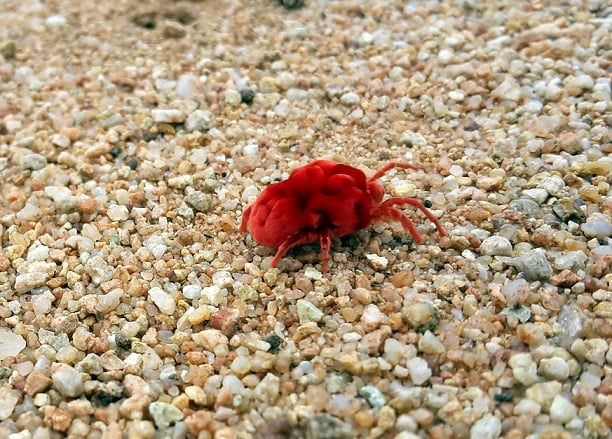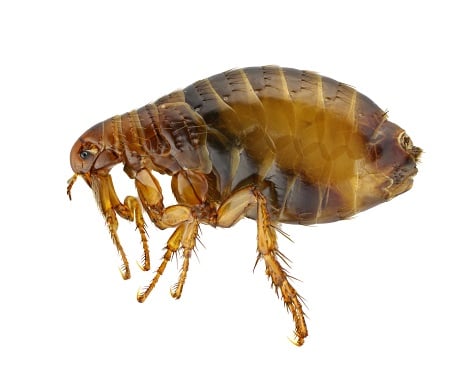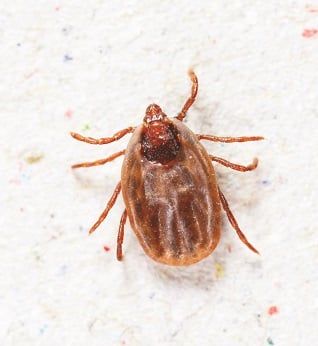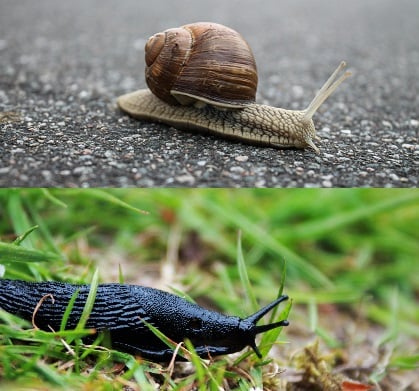How To Protect Your Pets From Autumn Pests

Parasite prevention is an important part of pet ownership all year round, and autumn is no different. With the change in temperature and increase in wetter weather, some parasites affecting cats and dogs may become more prevalent. We've put together a list of common parasites you might come across in autumn, and some tips for how to manage them. Remember, prevention is always better than cure!
 |
Harvest MitesHarvest mites are very small, bright orange mites that are most common between July and November. They are most active during the day, and can be found in long grasses, waiting for animals to brush past so that they can hook onto the animal's fur. Harvest mites bite into the animal's skin and release a digestive enzyme that irritates the skin, causing redness, itching and inflammation. They mostly congregate in the folds around your pet's ears, between toes, and on the legs and belly. Symptoms of harvest mite infestation include intense licking of the paws and scratching around the ears and undercarriage. Mites can be hard to spot - part your pet's fur and look for tiny orange dots or a reddish-orange "dust". There is no specific treatment for harvest mites, but regular flea treatments have been shown to help in preventing infestation. If you're unsure about what to do, speak to your vet. |
FleasFleas can be especially bothersome around the autumn months. The colder weather means that we're more inclined to turn on the heating, and the raised temperature can bring dormant fleas living in carpets and furniture out of hibernation. As the weather cools off, we would recommend having a thorough clean of soft furnishings such as carpets, curtains and pet bedding - fleas will easily be killed by a hot wash. Make sure to also keep an eye on your pet for signs of infestation, such as itching and dark brown flea dirt on their skin. The most effective way to prevent flea infestation is to make sure you keep up to date with your pet's regular flea treatments all year round. |
 |
 |
TicksTicks, like harvest mites, can be found in grassy areas and woodland. They cling to the blades of grass, and when an animal walks past they grab onto the animal's fur. Ticks bite into the animal's skin to feed on blood, increasing in size the more they consume. Ticks can be tricky to remove - if you don't remove all the tick's mouth parts from within the skin as well as the body of the tick itself, they can cause infections for your pet. There are special tools that help remove ticks, or your vet can show you the correct technique. Ticks will fall off on their own eventually once they have had their fill, but it's best to remove them if you notice them. |
LungwormLungworm is a parasitic worm affecting dogs (but not cats). The worm eggs are found in slugs and snails, which are more commonly seen in the wetter months of spring and autumn. Although most dogs won’t choose to eat slugs and snails, they can swallow them accidentally when they forage through undergrowth, eat grass or drink from puddles. Dogs can also be infected by slime trails on outdoor food, water bowls or even toys. If a dog ingests an infected slug or snail, the worm eggs hatch into larvae and travel around the body and cause serious health issues that can potentially be fatal. Signs of lungworm infection to look out for include coughing, difficulty breathing, loss of appetite or stomach upset, or abnormal bleeding. If caught early enough, lungworm is treatable. If you suspect your dog has been infected with lungworm, or has symptoms suggestive of infection, contact your vet. Lungworm prevention is included in many regular parasite prevention treatments. |
 |
If you make sure to keep up to date with your pet's flea, tick and worming treatments, these pesky pests shouldn't be a problem. However, if you're concerned that your pet may be suffering from a parasite problem or you're unsure that your treatment plan is working, contact your vet.
Disclaimer
Please note that the content made available on this webpage is for general information purposes only. Whilst we try to ensure that at the time of writing all material is up to date and reflects industry standards, we make no representation, warranties or guarantees that the information made available is up to date, accurate or complete. Any reliance placed by yourselves is done so at your own risk.

